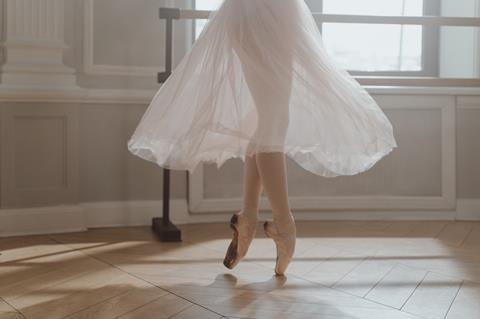Mental health campaigner Hope Virgo shares her perspective on body shaming after reports of toxic behaviour in ballet schools.

Imagine going to work or school and being ridiculed about your body. Being made to feel like a failure if you didn’t look a certain way. Imagine the uproar if you had one person in your job doing that to different people each week. Surely people wouldn’t stand around and watch. So why then, has it been accepted for decades that ballet schools across the UK can shame someone’s body?
Recently, it came to light, that across the many ballet schools in the UK, ballerinas are getting body shamed. This isn’t new news but has been talked about every now again for the last decade. This toxic body shaming causes so many dancers to feel wrong in themselves, to want to change their bodies, and to also start getting their self worth from their bodies. Over the last few years, we have seen an increase in the number of people being diagnosed with eating disorders.
"One’s view of oneself may move in a stepwise decline unless more positive experiences concerning one’s body are had."
Dr Chukwuemeka “Chuks” Nwuba explained that, “The rise in eating disorders - especially in highly-pressured aerobic activities such as dance - is deeply concerning. Unfortunately, the intensity of the training pathway combined with the relatively short length of a professional career can create rocky terrain for addressing such issues in a timely manner. Body shaming alone doesn’t cause an eating disorder, they are much more complicated than that, but they can exacerbate issues.
“One of the main concerns with body shaming is that the activity-dependent neuroplasticity of the brain - the framework via which we learn and form new memories - may be inappropriately activated. In other words, one’s view of oneself may move in a stepwise decline unless more positive experiences concerning one’s body are had. Body shaming can add to the many forces enabling an eating disorder to more energetically embed.”
Read more on eating disorders
Ten practical ways to support a child with an eating disorder as they go back to school
People with eating disorders feel like the Church doesn’t care but here’s how they can step up
Time to break free from damaging diet culture and listen to what Jesus says about our bodies
I know from my own experience of living in recovery from anorexia, and through my campaign work that so many of us go through life feeling wrong within ourselves. That so many of us project feelings and emotions onto our bodies and then society tells us to change our bodies to feel better emotionally and we believe them. But imagine having these thoughts amplified by those round you. Being told by so many you are nothing unless you change. We must remember that eating disorders and body shaming aren’t confined to ballet schools but are something that we do see all across our culture.
Will things change? Will we stop going to the ballet, or stop talking about bodies? Maybe not to the level it needs to happen, but we all need to ask ourselves what one thing will we change and stop this toxic body shaming that we see daily? Dr Chuks said: “As Christians, the whole premise of the ‘body’, and its importance, is central. To enable us to better promote positive body image, we ought to refamiliarise ourselves with Paul’s teaching of different aspects of the body working in tandem as one: no-one is valued more than anyone else and everyone deserves to be cherished as they are.”
"Paul’s teaching says no-one is valued more than anyone else and everyone deserves to be cherished as they are.”
I love what Dr Chuks says and, while it’s hard to love our bodies, I have spent many years at war with my own body. I've read many a self help book to try and love it. For me, it's the simple act of remembering three things; firstly, my self worth doesn’t come from my body. Second, life is too short to be self conscious - so wear that outfit; get out on the beach. And finally, body image is a projection of our feelings on to our bodies. Sadly, right now alongside the increase of those struggling with their bodies, there is also an increase in eating disorders. This is something we must keep bringing out in to the light.
Dr Chuks says, “If you are a loved one, and you are worried, it is important to keep lines of communication open with the individual who is struggling. This is important, because an eating disorder likes few things more than silence and isolation.” So reach out to your friends, have a chat and be direct. It might not help immediately but it could just start the process!



































No comments yet